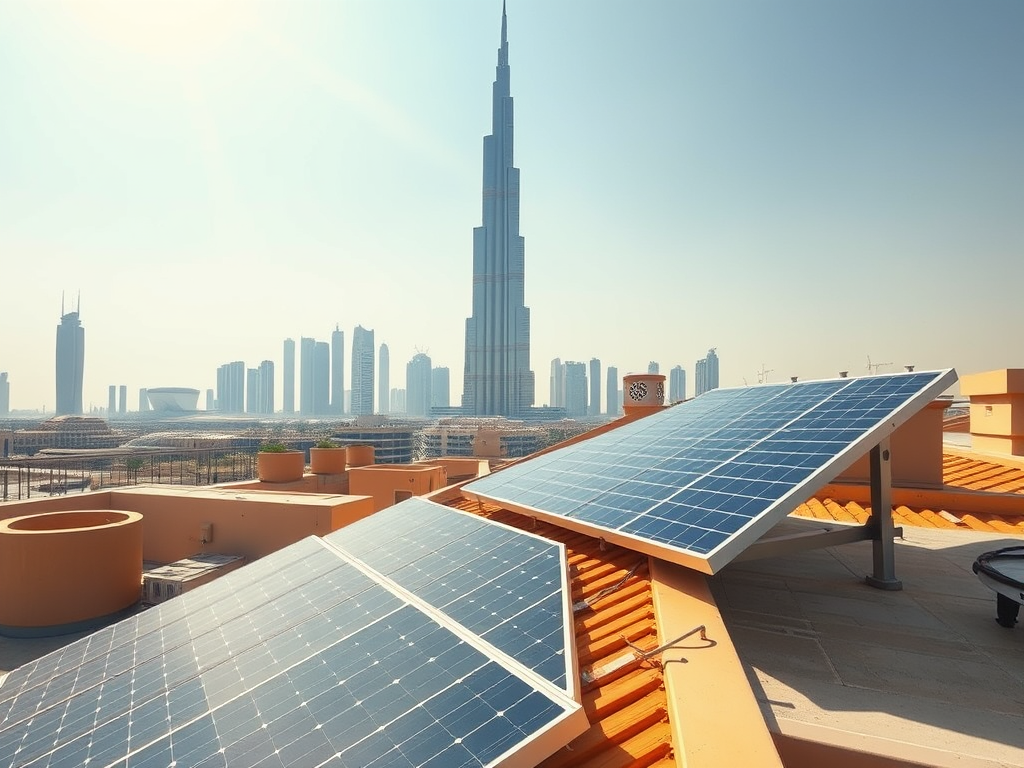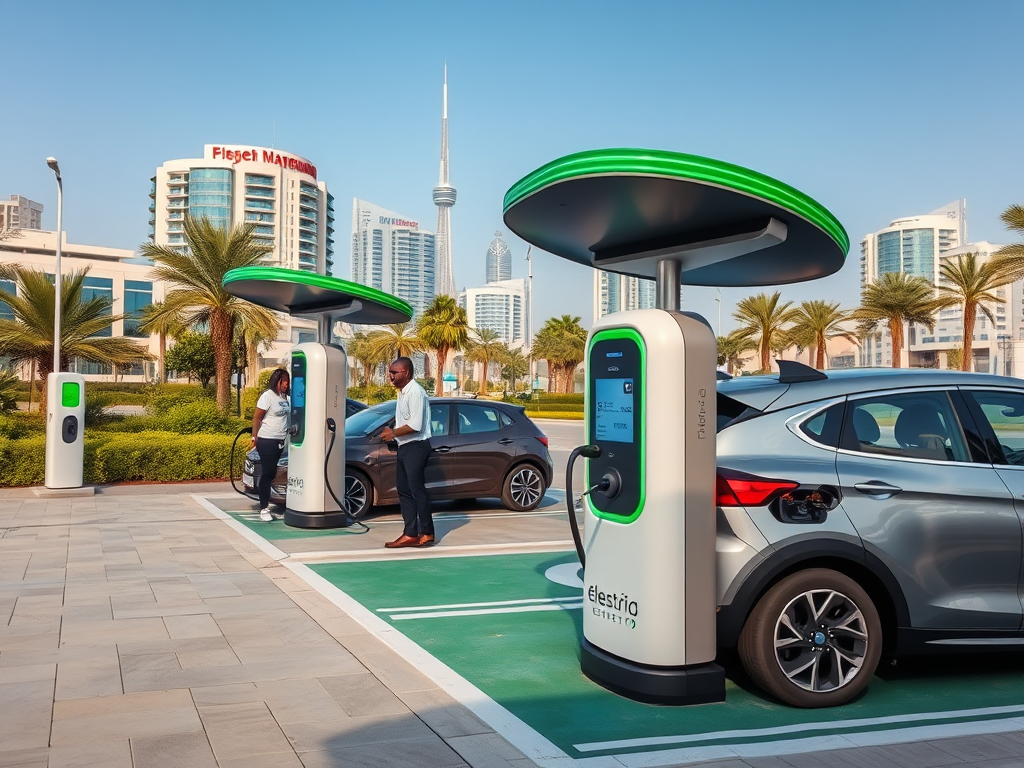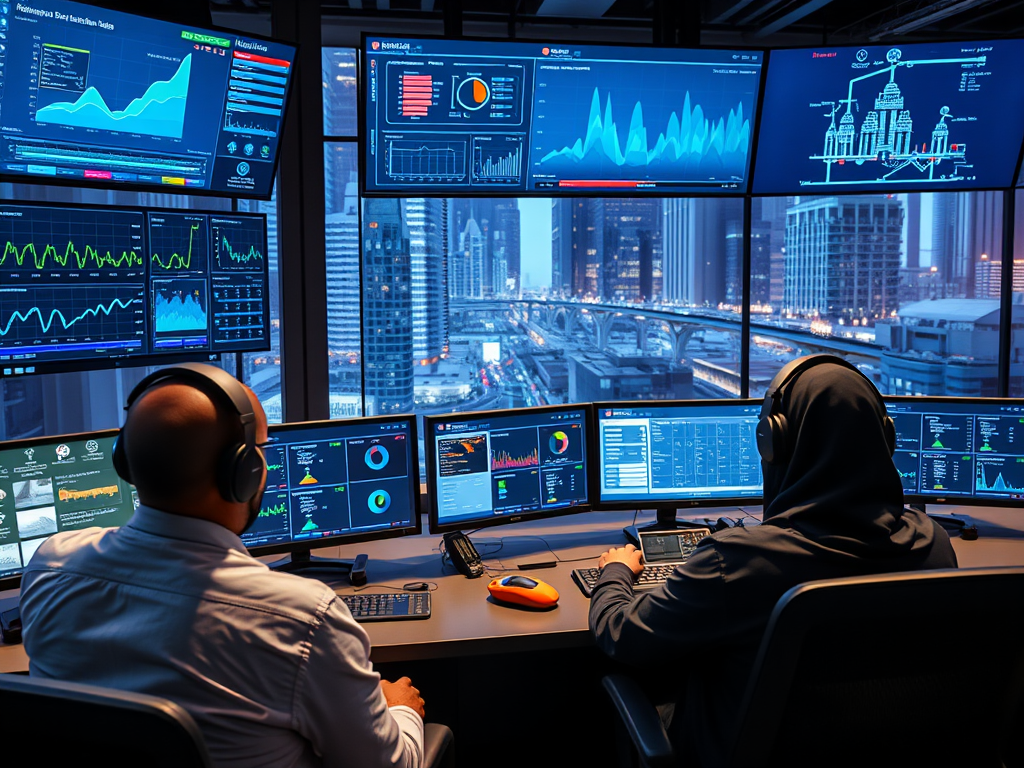Dubai is rapidly positioning itself as a front-runner in smart grid technologies, reflecting broader global trends aiming for sustainable energy solutions. Smart grids integrate digital technology into the traditional infrastructure of electricity distribution, enhancing efficiency, and paving the way for the increased use of renewable energy. Recent investments in this sector highlight the emirate’s commitment to innovation, sustainability, and energy security. This article explores the investment trends shaping Dubai’s smart grid landscape, focusing on key drivers, emerging technologies, and future outlooks.
Key Drivers of Investment in Smart Grid Technologies

Several factors contribute to the growing investment in smart grid technologies in Dubai. These drivers are essential in fostering a conducive environment for innovation and growth in this sector:
- Government Initiatives: The Dubai government has established several initiatives, such as the Dubai Clean Energy Strategy 2050, aiming to increase the use of renewable energy sources significantly.
- Urbanization and Population Growth: With a continually growing population and urban sprawl, there is an increasing demand for efficient energy consumption and management.
- Technological Advancements: Innovations, particularly in IoT and AI, are transforming electricity management. These technologies allow for better real-time data analysis, predictive maintenance, and enhanced grid reliability.
- Public-Private Partnerships: Collaborations between the government and private firms foster a climate for shared investment, risk mitigation, and knowledge exchange.
- Focus on Sustainability: There is a strong global and local emphasis on reducing carbon emissions and promoting sustainable practices, driving investment into cleaner technologies.
Emerging Smart Grid Technologies in Dubai

The landscape of smart grid technologies is characterized by various innovations currently being implemented in Dubai. Some notable technologies include:
- Advanced Metering Infrastructure (AMI): AMI allows for real-time monitoring and management of energy consumption, leading to more efficient usage patterns.
- Demand Response Systems: These systems help manage energy consumption during peak hours, alleviating strain on the grid and minimizing outages.
- Distributed Energy Resources (DER): This includes solar panels and other renewable energy sources connected to the grid that promote an efficient energy mix.
- Energy Storage Solutions: Battery technologies are crucial in storing energy produced from renewable sources for later use, which enhances grid reliability.
- Smart Grids with AI Integration: AI-enabled systems predict trends, automate decisions, and enhance energy distribution processes.
Financial institutions are increasingly recognizing the potential of smart grid technologies in Dubai. Some major opportunities for investment include:
- Funding startups focusing on energy solutions.
- Sponsoring research into new technologies.
- Investing in smart grid infrastructure development projects.
- Exploring joint ventures with technology firms involved in smart grid initiatives.
- Providing green bonds to finance renewable energy projects and infrastructure.
Investors are drawn to the prospect of high returns stemming from the environmental appeal and the emirate’s commitment to sustainability, thus creating a vibrant investment landscape.
The Future Outlook for Smart Grid Investments in Dubai
The future of smart grid investments in Dubai appears promising, aligned with the government’s strategic vision for energy diversification and sustainability. The focus will likely shift towards:
- Enhancing public infrastructure through digital transformation.
- Increasing integration of renewable energy into the existing grid.
- Expanding electric vehicle (EV) charging infrastructure.
- Promoting energy-efficient technologies in residential and commercial sectors.
- Incorporating smart city applications to optimize urban energy resources.
These developments offer exciting pathways for local and international investors, indicating a steady rise in capital inflow and technological adoption in the coming years.
Conclusion
In summary, Dubai is making significant strides in the field of smart grid technologies, propelled by robust governmental support, innovative technologies, and sustainable energy goals. With a strong focus on attracting investments and fostering public-private partnerships, Dubai is poised to become a global leader in smart grid implementation. By investing in these technologies, stakeholders not only contribute to a sustainable energy future but also stand to gain from the economic opportunities that this transformation presents.
Frequently Asked Questions
1. What are smart grids, and why are they important?
Smart grids are electricity supply networks that use digital communications technology to detect and react to local changes in usage. They are important as they enhance efficiency, reliability, and the integration of renewable energy sources.
2. How is Dubai promoting smart grid technology?
Dubai promotes smart grid technology through comprehensive governmental initiatives like the Dubai Clean Energy Strategy 2050 and investments in advanced infrastructure and public-private partnerships.
3. What are the main technologies used in smart grids?
Main technologies include Advanced Metering Infrastructure (AMI), Demand Response Systems, Distributed Energy Resources (DER), Energy Storage Solutions, and AI integration for enhanced management.
4. What investment opportunities exist in Dubai’s smart grid sector?
Investment opportunities include funding for startups, joint ventures with technology firms, financing smart grid infrastructure projects, and green bonds for renewable energy financing.
5. What is the expected future for smart grid investments in Dubai?
The future of smart grid investments in Dubai looks positive, with plans for expanding renewable energy integration, improving infrastructure, and developing smart city applications to optimize energy usage.

